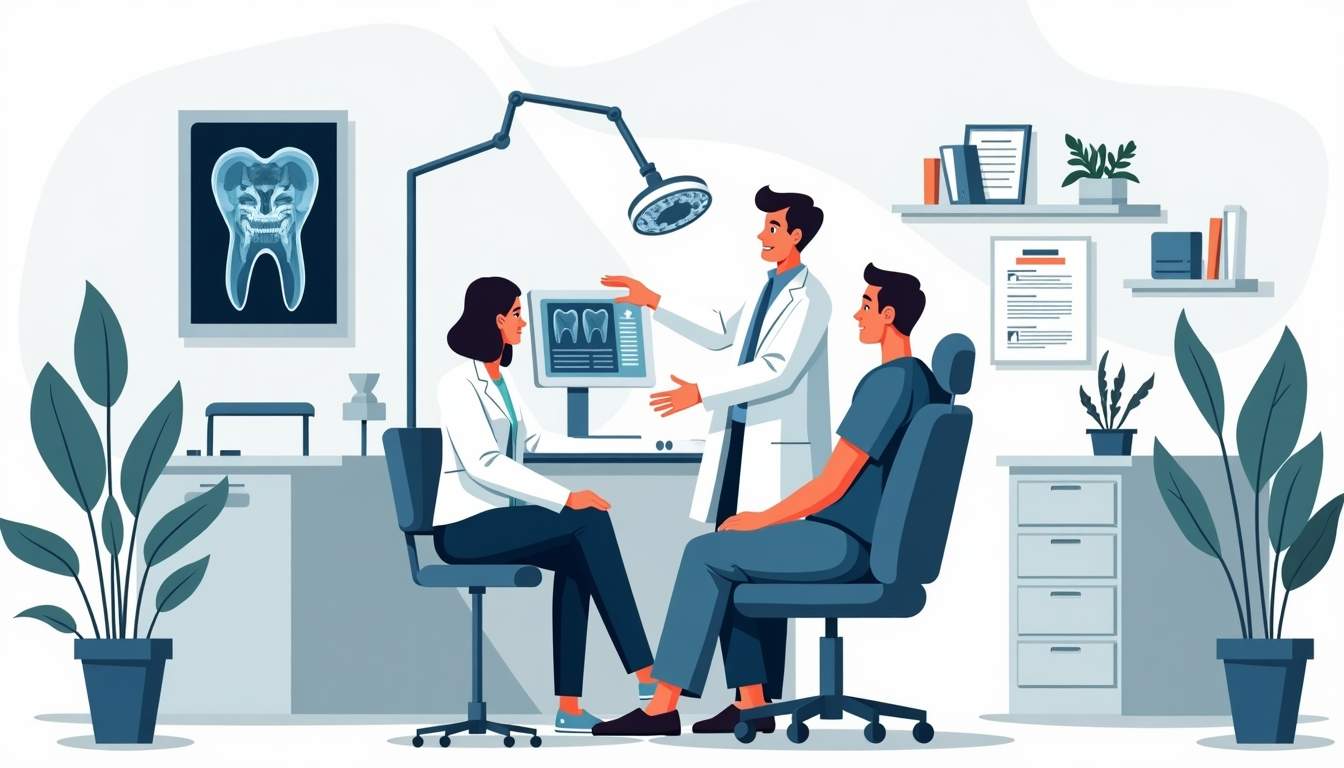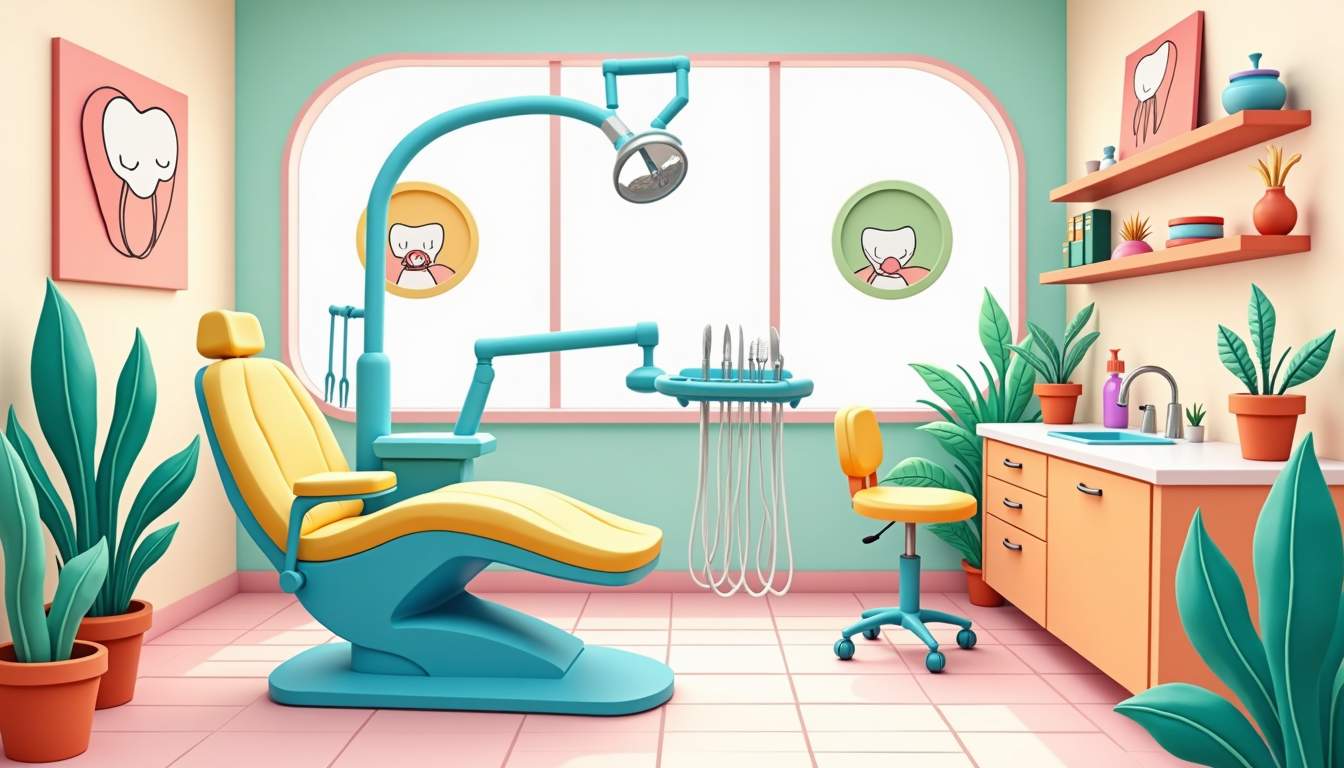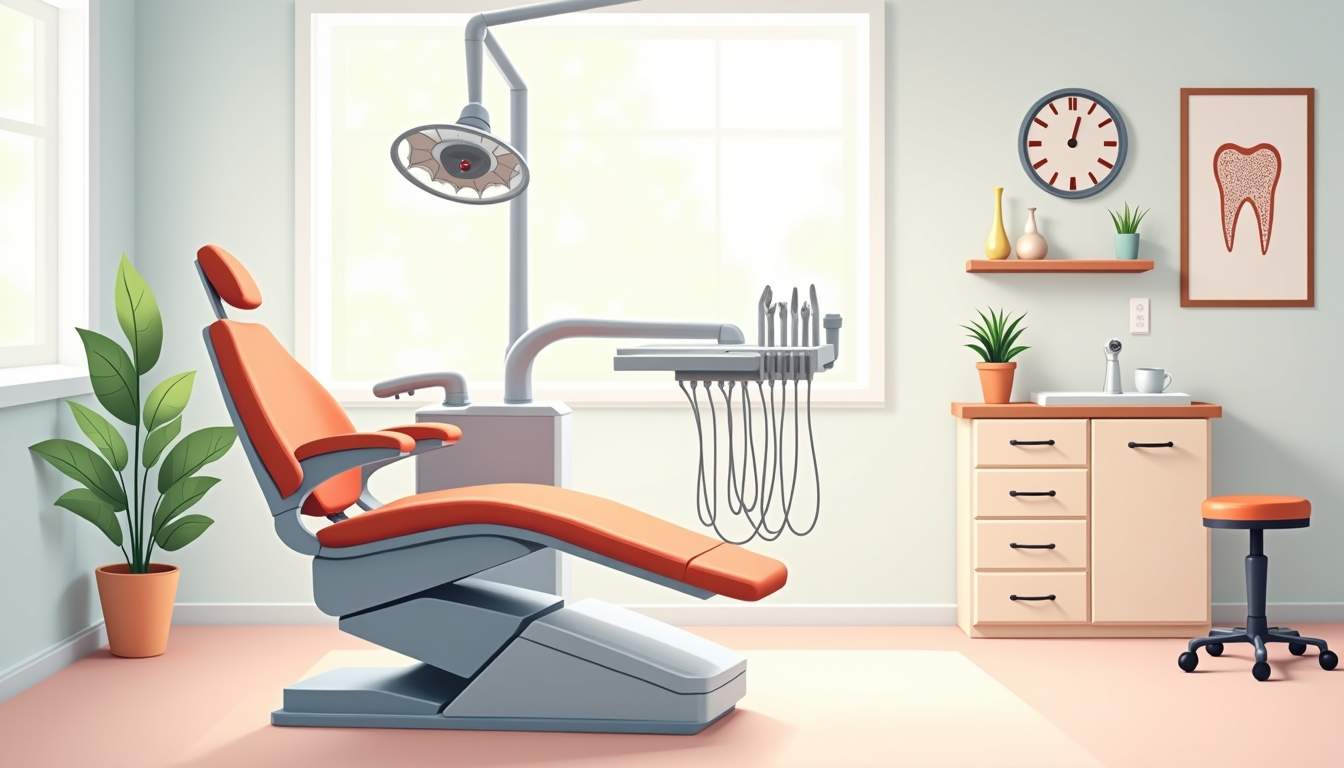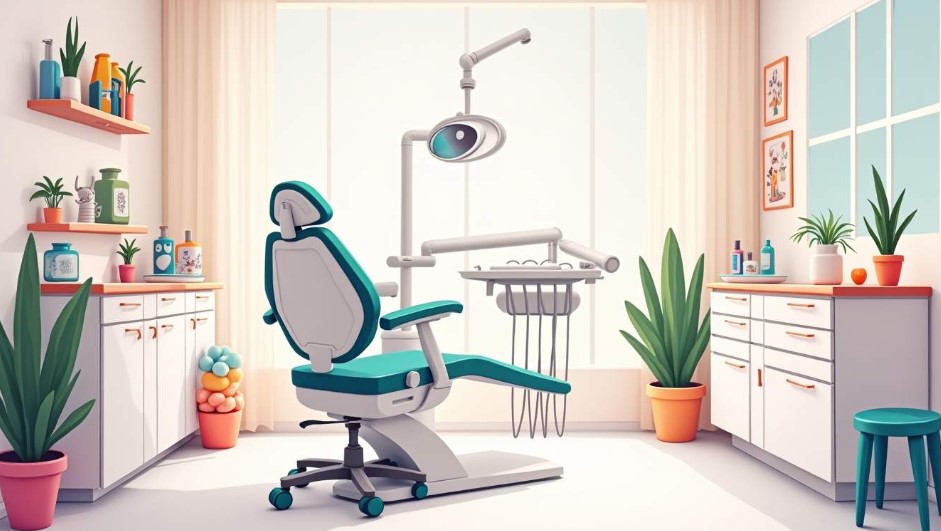Visiting the dentist can sometimes feel intimidating, especially for children or those with dental anxiety. However, gentle general dentistry focuses on making every visit as comfortable and stress-free as possible. By emphasizing kindness, patience, and thorough care, dentists can help patients maintain healthy smiles without fear or discomfort. This article explores the essential aspects of gentle general dentistry, including routine cleanings, comprehensive check-ups, and specialized children’s dental care.
The Importance of Routine Dental Cleanings
What Happens During a Dental Cleaning?
Dental cleanings are a cornerstone of preventive oral health care. During a typical cleaning appointment, a dental hygienist or dentist will remove plaque and tartar buildup from the teeth, especially in areas that are hard to reach with regular brushing and flossing. This process helps prevent cavities, gum disease, and bad breath.
The cleaning usually begins with a physical exam of your mouth to check for any signs of problems. Then, the hygienist uses specialized tools to scrape away hardened deposits on teeth. After scaling, the teeth are polished to remove surface stains and make the enamel smooth. Finally, flossing and sometimes fluoride treatments complete the session. Additionally, during this appointment, the dental professional may take the opportunity to educate patients about proper brushing techniques and recommend specific dental care products tailored to their individual needs, such as electric toothbrushes or therapeutic mouth rinses. This personalized advice can empower patients to take charge of their oral health between visits. To learn more about comprehensive oral and medical care, you can visit Shire Doctors and Dentists, where they provide an extensive array of medical treatments, offering you a wealth of expertise, all conveniently available under one roof.
Why Gentle Cleanings Matter
For many patients, the idea of having their teeth scraped can sound uncomfortable or even painful. Gentle dental cleanings focus on minimizing discomfort by using careful techniques and maintaining open communication throughout the appointment. Hygienists trained in gentle care understand that sensitivity varies from person to person and adjust their approach accordingly.
Moreover, a gentle cleaning can help reduce dental anxiety, encouraging patients to keep up with regular visits. Consistent cleanings are vital because they catch early signs of trouble and prevent more invasive treatments down the line. Beyond the immediate benefits of a cleaner mouth, regular dental cleanings can also contribute to overall health. Research has shown a link between oral health and systemic conditions such as heart disease and diabetes. By maintaining a healthy mouth, patients may be able to reduce their risk of these serious health issues. Furthermore, the relationship built between patients and their dental care team during these visits fosters trust and encourages open discussions about any concerns, leading to a more comprehensive approach to health care.
Comprehensive Dental Check-Ups: Beyond the Surface
What Does a Dental Check-Up Include?
Dental check-ups are more than just a quick look inside the mouth. These appointments provide a thorough assessment of your oral health, including teeth, gums, tongue, and other soft tissues. Dentists use various tools and techniques to detect issues that might not be visible or causing symptoms yet.

During a check-up, the dentist will examine your bite, look for signs of tooth decay, check gum health, and evaluate any previous dental work. X-rays are often taken to reveal problems beneath the surface, such as cavities between teeth, impacted wisdom teeth, or bone loss related to gum disease. In addition to these evaluations, dentists may also assess the alignment of your jaw and the overall function of your bite, which can be crucial in preventing future issues like temporomandibular joint disorders (TMJ). This comprehensive approach ensures that all aspects of your oral health are considered, allowing for early detection and intervention of potential problems.
The Role of Patient Education
Gentle general dentistry emphasizes the importance of educating patients during check-ups. Dentists take time to explain their findings in simple terms and discuss personalized strategies for maintaining or improving oral health. This collaborative approach helps patients feel empowered and involved in their care.
For example, a dentist might demonstrate proper brushing and flossing techniques, recommend specific dental products, or suggest dietary changes to protect teeth. By fostering a supportive environment, gentle dentistry reduces fear and builds trust between patients and providers. Furthermore, discussions about the impact of lifestyle choices, such as smoking or excessive sugar consumption, can play a significant role in a patient’s oral health journey. By addressing these factors, dentists not only help patients understand the importance of their oral hygiene routines but also encourage them to make informed decisions that can lead to long-lasting health benefits. This holistic approach to dental care ensures that patients are well-equipped to maintain their oral health between visits, ultimately contributing to a lifetime of healthy smiles.
Specialized Children’s Dental Care: Building Healthy Habits Early
Why Early Dental Visits Are Crucial
Children’s dental care is a unique and vital part of general dentistry. Establishing a dental home early in life helps prevent cavities, guides proper oral development, and sets the stage for a lifetime of healthy habits. The American Academy of Pediatric Dentistry recommends that children see a dentist by their first birthday or within six months after their first tooth erupts.

Early visits allow the dentist to monitor growth and development, identify risk factors for decay, and provide anticipatory guidance for parents. These appointments also help children become familiar with the dental office environment, reducing fear and anxiety in future visits. Additionally, these early interactions can help identify any potential issues, such as misalignment of teeth or jaw development problems, that may require early intervention. By addressing these concerns proactively, parents can help ensure that their children have a healthy foundation for their permanent teeth.
Creating a Positive Experience for Children
Gentle pediatric dentistry focuses on making dental visits fun and non-threatening. Dentists and staff often use child-friendly language, colorful tools, and engaging activities to keep young patients comfortable. Techniques such as “tell-show-do” help children understand what will happen during the appointment, reducing surprises and fears.
Moreover, pediatric dentists are skilled at managing behavior and providing care tailored to each child’s needs. This might include using distraction methods, offering praise and rewards, or scheduling shorter appointments. The goal is to build trust and encourage children to take an active role in their oral health. Many dental offices also incorporate fun themes or characters in their décor, creating an inviting atmosphere that can make children excited about their visits. By fostering a sense of curiosity and adventure, these practices help to instill a positive attitude toward dental care that can last a lifetime.
Preventive Care and Education for Families
Preventive dental care is especially important for children, as baby teeth play a critical role in speech development, chewing, and guiding permanent teeth into place. Gentle dentistry includes applying fluoride varnishes, placing dental sealants to protect molars, and teaching parents about proper nutrition and oral hygiene for their kids.
Parents also receive guidance on thumb sucking, pacifier use, and injury prevention. By involving the whole family in dental care, gentle general dentistry promotes a supportive environment that nurtures healthy smiles from infancy through adolescence. Furthermore, educational resources such as workshops or informational pamphlets can empower parents with knowledge about the importance of regular dental check-ups and the impact of diet on oral health. Engaging families in discussions about the long-term benefits of maintaining good oral hygiene can help reinforce these practices at home, ensuring that children develop healthy habits that will serve them well into adulthood.
Addressing Dental Anxiety with Compassionate Care
Understanding Dental Fear
Dental anxiety is a common barrier to receiving regular dental care. Fear of pain, discomfort, or negative past experiences can cause patients to avoid appointments, leading to worsening oral health. Gentle general dentistry acknowledges these fears and strives to create a welcoming, patient-centered atmosphere.
By listening carefully and respecting patients’ concerns, dental professionals can tailor their approach to ease anxiety. This might include explaining procedures in detail, offering breaks during treatment, or using relaxation techniques.
Techniques to Enhance Comfort
Several strategies help make dental visits more comfortable for anxious patients. These include the use of topical anesthetics to numb sensitive areas before injections, sedation options like nitrous oxide (laughing gas), and modern equipment that reduces noise and vibration.
Additionally, dentists may schedule longer appointments to allow for a slower pace or provide headphones and music to distract patients. The emphasis on gentle, compassionate care ensures that even those with dental fears can receive the treatment they need without distress.
Maintaining Oral Health Between Visits
Daily Habits for a Healthy Smile
While regular dental visits are essential, much of oral health depends on daily habits. Brushing twice a day with fluoride toothpaste, flossing once daily, and limiting sugary snacks and drinks form the foundation of good dental care. Gentle general dentistry encourages patients to adopt these routines and offers personalized advice based on individual needs.
For example, patients with sensitive teeth may benefit from special toothpaste, while those prone to dry mouth might need additional hydration or saliva substitutes. Tailored recommendations help optimize oral health and prevent common problems.
When to Seek Dental Care Between Check-Ups
Knowing when to contact a dentist outside of scheduled appointments is also important. Persistent tooth pain, bleeding gums, loose teeth, or signs of infection require prompt attention. Early intervention can prevent complications and reduce the need for extensive treatment.
Gentle general dentistry promotes open communication, encouraging patients to reach out with concerns or questions. This proactive approach supports ongoing oral health and peace of mind.
Conclusion: The Benefits of Gentle General Dentistry
Gentle general dentistry combines expert clinical care with kindness and empathy, making dental visits more pleasant for patients of all ages. By focusing on routine cleanings, thorough check-ups, and specialized children’s care, dentists can prevent oral diseases and foster lifelong healthy habits.

Addressing dental anxiety with compassion and offering personalized guidance empowers patients to take control of their oral health. Ultimately, gentle dentistry not only preserves beautiful smiles but also enhances overall well-being and quality of life.
Whether it’s a child’s first dental visit or an adult’s regular cleaning, gentle general dentistry ensures that every patient feels respected, comfortable, and confident in their care.








